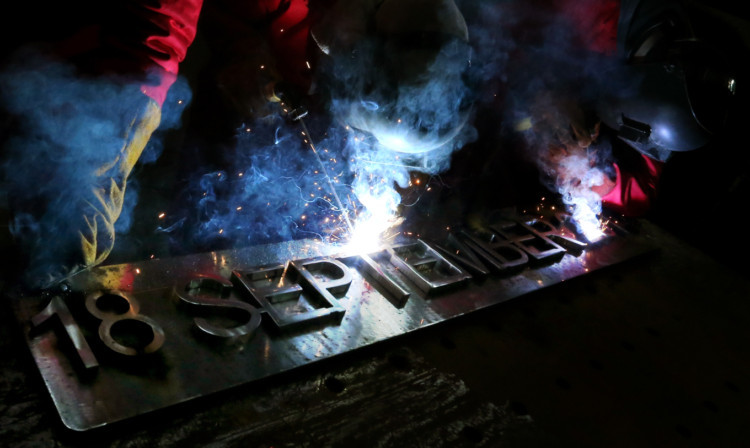With a year to go until the independence referendum a sensational new poll has put the Yes campaign a point ahead, The Courier can reveal.
The survey was last night hailed by the SNP, with Deputy First Minister Nicola Sturgeon declaring it is “game on”.
She told The Courier that the Panelbase poll the first to give Yes a lead since the wording of the question was finalised last year proved the SNP’s political opponents can “no longer take the people of Scotland for granted”.
Out of a sample of 908 people aged 18 and over in Scotland, the results showed 44% intend to vote Yes in response to the question “Should Scotland be an independent country?” while some 43% would vote No, with 13% undecided.
Support for independence has increased by seven points since the last Panelbase poll was carried out in July.
Support for a No vote has fallen by three points over the same period.
The SNP said the new poll is clear evidence that undecided voters are shifting toward voting for independence.
Senior party chiefs believe the findings are particularly significant as Panelbase was the first polling organisation to show the nationalists in the lead during the 2011 Holyrood election campaign a battle the SNP won by a landslide.
“It is game on for next September’s referendum,” Ms Sturgeon said. “With just over a year to go, this poll indicates that the positive case for Yes is capturing people’s imagination, while the No campaign’s ‘Project Fear’ is running out of steam.
“Polls will move up and down between now and next September as the debate over Scotland’s future gathers pace, but these very encouraging figures show that Yes can win and I believe will win.
“Certainly, the No campaign can no longer take the people of Scotland for granted.”
Ms Sturgeon believes a positive vision of what can be achieved under independence is swaying voters in favour of the proposition.
“As we move closer to the referendum voters are beginning to make up their minds and this poll suggests that as undecided voters find out more about the opportunities of independence, they are backing a Yes vote in increasing numbers,” she said.
“Scotland can be a successful independent country, and it is better for all of us if decisions about Scotland are taken by the people who care most about Scotland the people who live and work here.
“That is the essence of the case for Yes, and it is a compelling and positive case that the No campaign has no answer to.”
The Panelbase poll, commissioned by the SNP, was sampled between August 23 and 28.
A detailed breakdown shows 24% of people who voted Labour in the Scottish Parliament constituency vote in 2011 intend to vote Yes, compared to 6% of Conservative voters and 77% of SNP voters.
Meanwhile, among women aged 35-54, Yes leads No by 45% to 41%.
By stark contrast support from females aged 18 to 34 stands at just 36%.
Overall, half of men in all age brackets stated they would vote “yes” compared to 38% of women.
The poll also shows that 93% of Yes supporters are very likely to vote in the referendum, compared to 88% of No supporters.
However, a crumb of comfort for the Better Together campaign may come in Panelbase’s methodology, which is to report independence referendum voting intentions on the basis of those most likely to vote in the referendum some 908 of the sample.
Among the full sample of 1,043, including those least likely and not likely to vote, the figures are 41% Yes, 42% No and 17% Don’t Know.
The remarkable new poll comes just one day after a YouGov survey suggested support for No had risen to 59% while support for independence remains at 29%.
